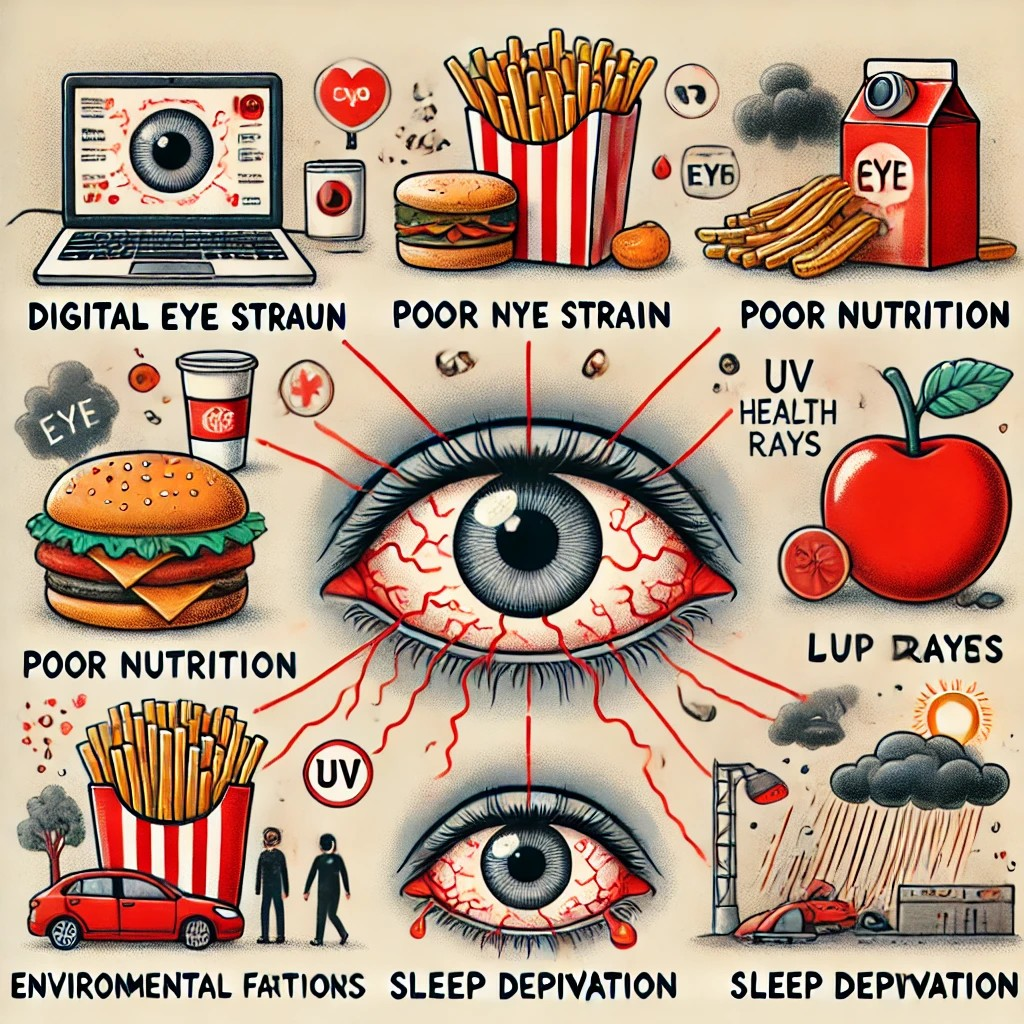
5 Surprising Causes of Eye Problems
5 Surprising Causes of Eye Problems
“Eye problems can arise from unexpected causes. Discover 5 surprising factors that affect eye health and learn how to protect your vision.”
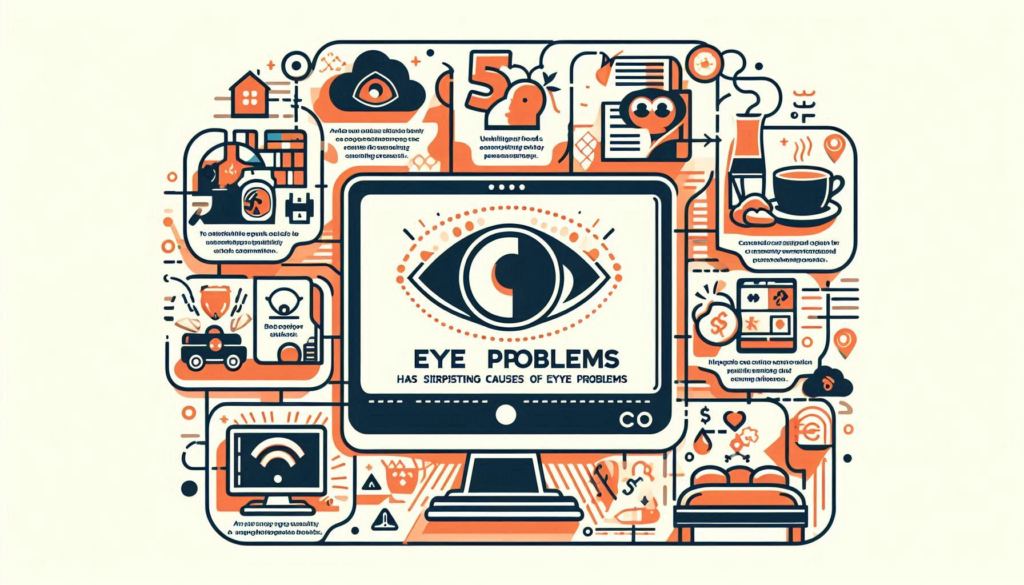
Introduction
Brief Overview of the Importance of Eye Health
Eye health is crucial for maintaining overall well-being and quality of life. Our eyes allow us to perceive the world around us, perform daily tasks, and enjoy life’s visual experiences. Protecting our vision is essential for preventing eye diseases and maintaining independence as we age.
Explanation of How Unexpected Factors Can Impact Vision
While many people are aware of common causes of eye problems, such as aging and genetics, there are several unexpected factors that can also impact vision. These surprising causes can contribute to eye strain, discomfort, and even long-term damage if not addressed. Understanding these factors can help us take proactive steps to protect our eye health.
Overview of the 5 Surprising Causes to Be Discussed
In this guide, we will explore five surprising causes of eye problems: digital eye strain, poor nutrition, environmental factors, sleep deprivation, and underlying health conditions. By understanding these causes, we can implement strategies to maintain healthy vision and prevent eye-related issues.
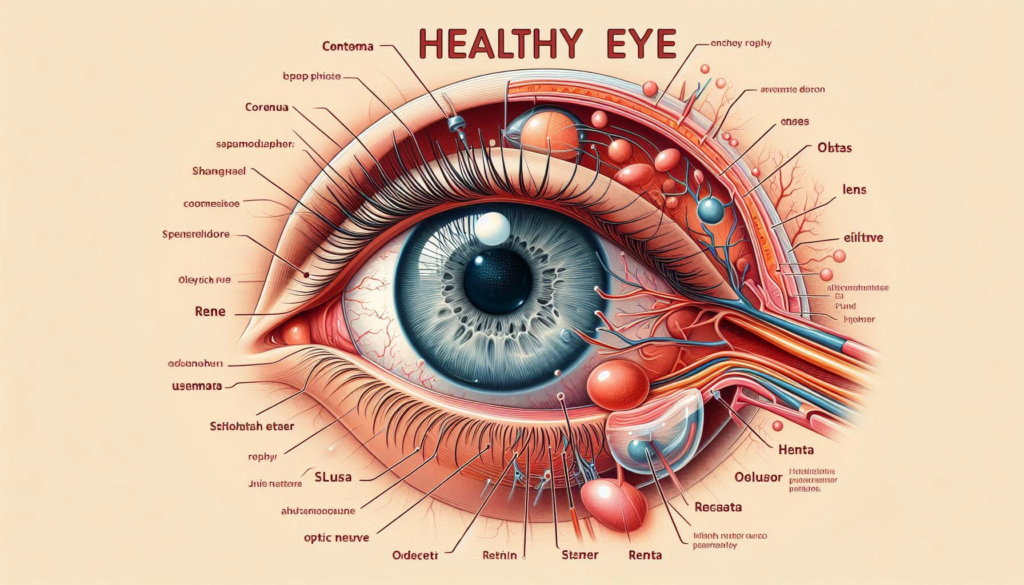
Cause 1: Digital Eye Strain
Explanation of Digital Eye Strain and Its Effects on Vision
Digital eye strain, also known as computer vision syndrome, occurs when the eyes become fatigued from prolonged use of digital devices such as computers, smartphones, and tablets. Symptoms of digital eye strain include dry eyes, blurred vision, headaches, and neck and shoulder pain.
How Prolonged Screen Time Contributes to Eye Problems
Prolonged screen time can lead to digital eye strain due to several factors:
- Reduced Blinking: When staring at screens, people tend to blink less frequently, leading to dry and irritated eyes.
- Glare and Blue Light: Screens emit blue light and glare, which can cause eye discomfort and strain.
- Close Viewing Distance: Holding devices too close to the eyes can increase the risk of eye strain and discomfort.
Tips for Reducing Digital Eye Strain
- Follow the 20-20-20 Rule: Every 20 minutes, take a 20-second break and look at something 20 feet away to reduce eye strain.
- Adjust Screen Settings: Reduce screen brightness, increase text size, and use blue light filters to minimize glare and discomfort.
- Maintain Proper Distance: Keep screens at an arm’s length (about 20-24 inches) from your eyes and position them slightly below eye level.
- Blink Frequently: Make a conscious effort to blink more often to keep your eyes moist and comfortable.
- Use Artificial Tears: If you experience dry eyes, use artificial tears to lubricate your eyes and reduce discomfort.
Cause 2: Poor Nutrition
Impact of Diet on Eye Health
Diet plays a significant role in maintaining eye health. Poor nutrition can lead to deficiencies in essential vitamins and minerals, which can negatively impact vision and increase the risk of eye diseases. A balanced diet rich in nutrients supports overall eye health and helps prevent conditions such as macular degeneration, cataracts, and dry eyes.
Nutrients Essential for Maintaining Healthy Vision
- Vitamin A: Crucial for maintaining the health of the retina and preventing night blindness.
- Vitamin C: An antioxidant that helps protect the eyes from oxidative stress and supports the health of blood vessels in the eyes.
- Vitamin E: Protects eye cells from damage caused by free radicals.
- Omega-3 Fatty Acids: Essential for maintaining the health of the retina and reducing the risk of dry eyes.
- Zinc: Supports the function of enzymes in the retina and helps maintain healthy vision.
Foods to Include and Avoid for Better Eye Health
- Include:
- Leafy Greens: Spinach, kale, and collard greens are rich in lutein and zeaxanthin, which protect the eyes from harmful light.
- Fish: Fatty fish like salmon, mackerel, and sardines are high in omega-3 fatty acids.
- Citrus Fruits: Oranges, lemons, and grapefruits are excellent sources of vitamin C.
- Nuts and Seeds: Almonds, sunflower seeds, and flaxseeds provide vitamin E and omega-3 fatty acids.
- Carrots: Rich in beta-carotene, which the body converts into vitamin A.
- Avoid:
- Sugary Foods: Excessive sugar intake can lead to diabetes, which increases the risk of diabetic retinopathy.
- Processed Foods: High in unhealthy fats and low in essential nutrients, which can negatively impact eye health.
- High-Sodium Foods: Excessive salt intake can lead to high blood pressure, which can damage the blood vessels in the eyes.
Cause 3: Environmental Factors
How Pollution and Allergens Affect Eye Health
Environmental factors such as pollution and allergens can have a significant impact on eye health. Exposure to pollutants and allergens can cause irritation, inflammation, and allergic reactions in the eyes. Long-term exposure to environmental toxins can increase the risk of developing chronic eye conditions.
Common Environmental Triggers for Eye Problems
- Air Pollution: Particulate matter, smoke, and chemicals in the air can irritate the eyes and lead to conditions such as dry eyes and conjunctivitis.
- Allergens: Pollen, dust mites, and pet dander can trigger allergic reactions, causing redness, itching, and watering of the eyes.
- UV Radiation: Prolonged exposure to ultraviolet (UV) rays from the sun can increase the risk of cataracts and macular degeneration.
Strategies for Protecting Eyes from Environmental Damage
- Wear Sunglasses: Use sunglasses that block 100% of UV rays to protect your eyes from harmful radiation.
- Use Protective Eyewear: Wear safety goggles or glasses when exposed to dust, chemicals, or other irritants.
- Keep Indoor Air Clean: Use air purifiers and keep windows closed during high pollen seasons to reduce indoor allergens.
- Stay Hydrated: Drink plenty of water to keep your eyes moist and reduce the risk of dry eyes.
- Practice Good Hygiene: Wash your hands frequently and avoid touching your eyes to prevent the spread of allergens and pollutants.
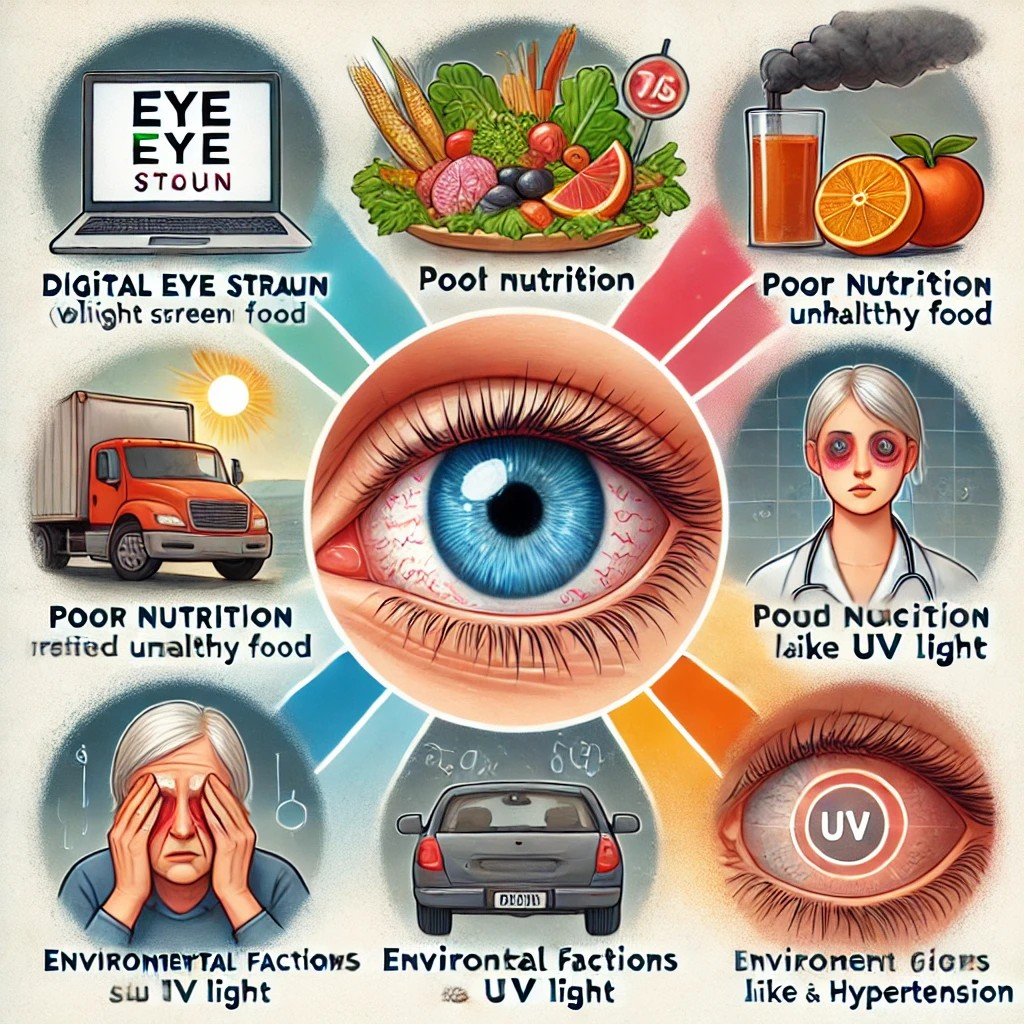
Cause 4: Sleep Deprivation
Connection Between Lack of Sleep and Eye Health
Adequate sleep is essential for overall health, including eye health. During sleep, the eyes undergo repair and recovery processes that are crucial for maintaining optimal vision. Lack of sleep can disrupt these processes, leading to various eye problems and discomfort.
Effects of Sleep Deprivation on Vision and Eye Comfort
- Dry Eyes: Insufficient sleep can reduce tear production, leading to dry, irritated eyes.
- Eye Strain: Fatigue from lack of sleep can cause eye strain, making it difficult to focus and leading to discomfort.
- Blurred Vision: Sleep deprivation can affect the muscles that control eye movement, resulting in blurred vision.
- Dark Circles and Puffiness: Lack of sleep can cause blood vessels under the eyes to dilate, leading to dark circles and puffiness.
Tips for Improving Sleep to Support Eye Health
- Establish a Sleep Routine: Go to bed and wake up at the same time every day to regulate your sleep cycle.
- Create a Relaxing Environment: Ensure your bedroom is dark, quiet, and cool to promote restful sleep.
- Limit Screen Time: Avoid using digital devices at least an hour before bedtime to reduce exposure to blue light, which can interfere with sleep.
- Practice Relaxation Techniques: Engage in activities such as reading, meditation, or deep breathing exercises to relax before bed.
- Avoid Stimulants: Limit caffeine and alcohol intake, especially in the evening, as they can disrupt sleep patterns.
Cause 5: Underlying Health Conditions
How Systemic Health Issues Can Lead to Eye Problems
Systemic health issues can have a significant impact on eye health. Conditions such as diabetes, hypertension, and autoimmune diseases can lead to various eye problems and increase the risk of vision loss. Managing these underlying health conditions is crucial for protecting eye health and preventing complications.
Common Health Conditions That Affect Vision
- Diabetes: High blood sugar levels can damage the blood vessels in the retina, leading to diabetic retinopathy, which can cause vision loss if left untreated.
- Hypertension: High blood pressure can damage the blood vessels in the eyes, leading to hypertensive retinopathy and increasing the risk of vision problems.
- Autoimmune Diseases: Conditions such as rheumatoid arthritis and lupus can cause inflammation in the eyes, leading to conditions like uveitis and dry eye syndrome.
Importance of Managing Overall Health for Eye Protection
- Regular Check-Ups: Schedule regular check-ups with your healthcare provider to monitor and manage underlying health conditions.
- Healthy Diet: Maintain a balanced diet rich in nutrients that support overall health and eye health.
- Exercise: Engage in regular physical activity to improve cardiovascular health and reduce the risk of systemic health issues.
- Medication Adherence: Follow your healthcare provider’s recommendations and take prescribed medications as directed to manage chronic conditions.
- Monitor Symptoms: Be aware of any changes in your vision or eye health and seek prompt medical attention if you experience any unusual symptoms.

Conclusion
Recap of the 5 Surprising Causes of Eye Problems
- Digital Eye Strain: Caused by prolonged screen time, leading to dry eyes, blurred vision, and headaches.
- Poor Nutrition: Lack of essential nutrients can negatively impact eye health and increase the risk of eye diseases.
- Environmental Factors: Pollution, allergens, and UV radiation can cause irritation and long-term damage to the eyes.
- Sleep Deprivation: Insufficient sleep can lead to dry eyes, eye strain, and blurred vision.
- Underlying Health Conditions: Systemic health issues like diabetes and hypertension can lead to serious eye problems and vision loss.
Encouragement to Implement Preventive Measures for Better Eye Health
By understanding and addressing these surprising causes of eye problems, you can take proactive steps to protect your vision and maintain healthy eyes. Implementing preventive measures such as proper nutrition, adequate sleep, and regular eye check-ups can significantly improve your eye health and overall well-being.
Final Thoughts on the Importance of Regular Eye Check-Ups and Maintaining a Healthy Lifestyle
Regular eye check-ups are essential for detecting and managing eye problems early. Maintaining a healthy lifestyle, including a balanced diet, regular exercise, and proper sleep, is crucial for overall health and eye protection. Prioritize your eye health and take proactive steps to ensure long-term vision and well-being.
FAQs
Q1: How does digital eye strain affect vision?
A1: Digital eye strain, caused by prolonged screen time, can lead to symptoms like dry eyes, blurred vision, and headaches. It occurs due to reduced blinking and focusing on screens for extended periods.
Q2: What nutrients are essential for eye health?
A2: Nutrients like vitamin A, vitamin C, vitamin E, omega-3 fatty acids, and zinc are crucial for maintaining healthy vision. These nutrients help protect the eyes from damage and support overall eye health.
Q3: How can environmental factors impact eye health?
A3: Pollution, allergens, and UV radiation can irritate the eyes and cause conditions like dry eyes, allergies, and photokeratitis. Protecting eyes from these environmental factors is essential for maintaining eye health.
Q4: Why is sleep important for eye health?
A4: Adequate sleep is vital for eye health as it allows the eyes to rest and recover. Sleep deprivation can lead to dry eyes, eye strain, and blurred vision, affecting overall eye comfort and function.
Q5: How do underlying health conditions affect vision?
A5: Systemic health issues like diabetes and hypertension can lead to eye problems such as diabetic retinopathy and hypertensive retinopathy. Managing these conditions is crucial for preventing vision loss and maintaining eye health.
Q6: How can environmental factors impact eye health? A6: Pollution, allergens, and UV radiation can irritate the eyes and cause conditions like dry eyes, allergies, and photokeratitis. Protecting eyes from these environmental factors is essential for maintaining eye health.
Q7: Why is sleep important for eye health? A7: Adequate sleep is vital for eye health as it allows the eyes to rest and recover. Sleep deprivation can lead to dry eyes, eye strain, and blurred vision, affecting overall eye comfort and function.
Q8: How do underlying health conditions affect vision? A8: Systemic health issues like diabetes and hypertension can lead to eye problems such as diabetic retinopathy and hypertensive retinopathy. Managing these conditions is crucial for preventing vision loss and maintaining eye health.
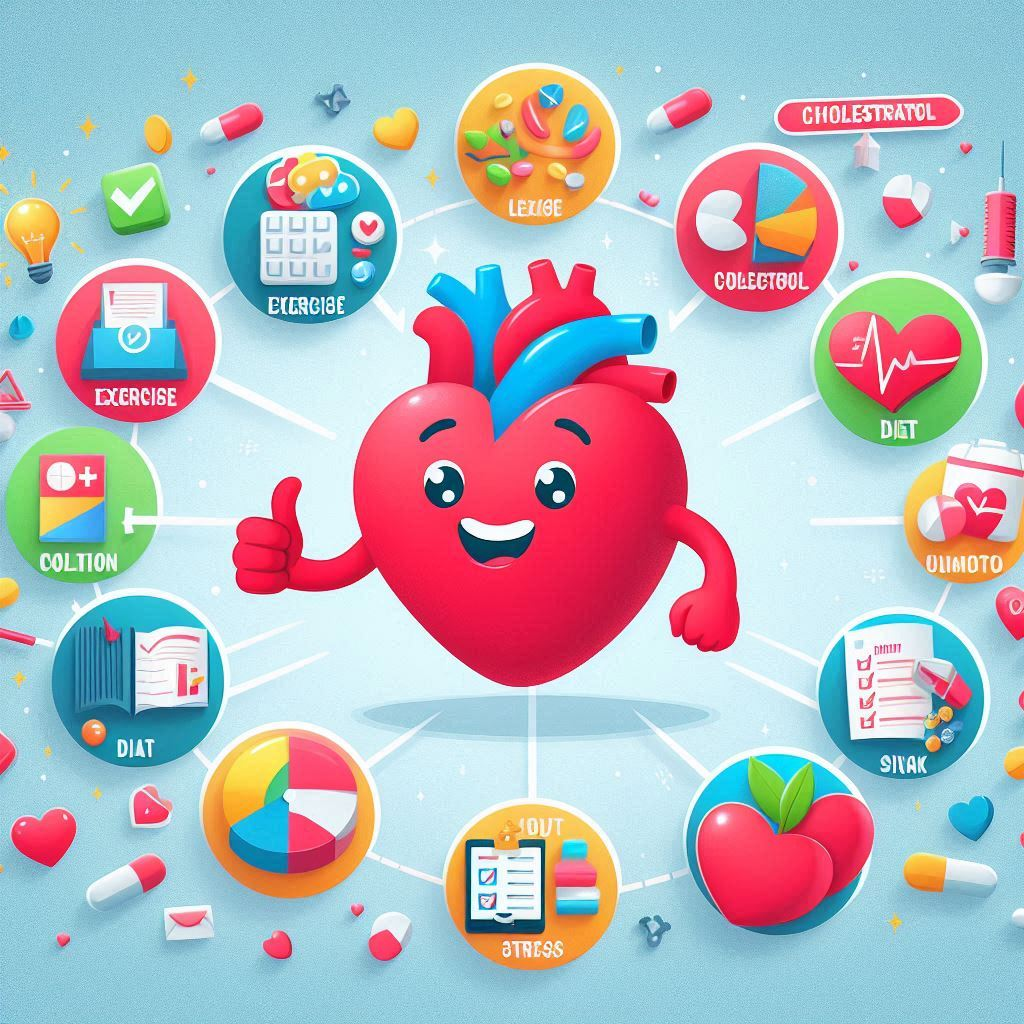


One Comment
Pingback: